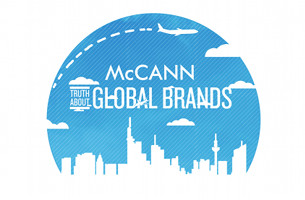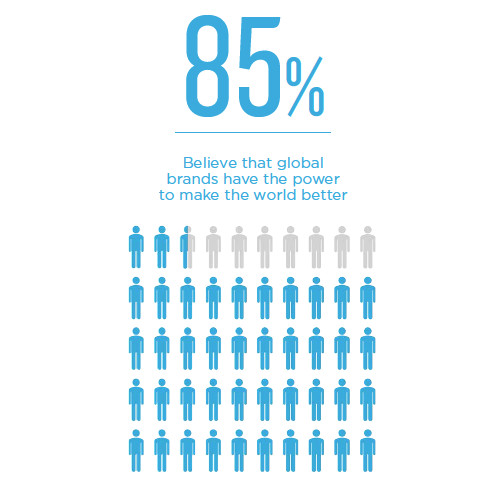
Success in the Age of Deep Globality

Back in February, McCann Worldgroup launched its ‘Truth about Global Brands’ study in Frankfurt, Germany. Niclas Wagner, new Head of Strategy for McCann Germany, presented the central findings to invited clients and journalists, to better understand the changing dynamics of global brand marketing today. The presentation was followed by a panel discussion with Sandra Cameron, of Opel/ Vauxhall, Mechthild Diermann, of MIELE, and Oliver Rosenthal, of Google.
LBB’s Addison Capper caught up with Niclas to find out what inspired the study, what the agency found, and the difference between ‘globalistation’ and ‘globality’.
LBB> What inspired you to initially make this study?
Niclas Wagner> Truth Central is McCann Worldgroup’s global thought leadership unit. We exist to create original research that can help shape and grow our clients’ business. At Truth Central we create a fresh report every three months - the latest and, in my opinion, most profound was 'Truth about Global Brands', in which we aimed to get fresh insights into our hyper-connected world and the role brands play in it.
LBB> What did the study entail?
NW> The study surveyed 30,000 people across all regions of the world. It highlights people’s attitudes and beliefs towards global, as well as the swiftly evolving media and cultural landscape. The research lays out the most powerful ways for brands to successfully navigate this new era of Deep Globality, focusing on three key principles: create a globality framework, earn your way into culture and inspire creative that travels.
LBB> Were you particularly surprised by any results? Why?
NW> The fact that 67 per cent of respondents in Germany think that global brands have the ability to make the world a better place, and 68 per cent even think that brands have higher chances to do so than governments, shows us that marketers and agencies are not the only ones believing in the power of brands.
LBB> Can you explain the difference between ‘globalisation’ and ‘globality’?
NW> Globality describes a new reality rather than an inexorable process. The qualification of globality as Deep Globality is pointing towards the best way to behave in this new reality. As emerging markets become more sophisticated, the need for deep cultural understanding, deep knowledge of how to do business and deep negotiation of increasingly complex legislation and media landscapes is vital.
LBB> How can brands use that approach to succeed in local markets?
NW> Brands need to understand how to calibrate their globality by finding out how local or global their category, market and target group is. This gives them a framework that defines their freedom on how global or local their brand can become. Secondly brands need to earn their way into people’s culture. This is an individual task, although our study has revealed an array of patterns that help, finding commonalities and differences, one can build its story on. And last but not least, brands need to understand how creative travels. It is not only about replication of vacuum packed brand experiences. Just because you have an ad with four women with different skin tones in it, it doesn’t mean that you reflect their realities and wishes. You need to tap into their culture and actively enrich it.
LBB> How important is it for the ad industry to understand that too?
NW> Understanding how creative travels is vital if you want your brands to play a meaningful role in people’s lives. However, the framework McCann has developed is not only focussing on communication or marketing. It is about the awareness of and efforts to thoughtfully spread a brand, idea or movement in a multi-market capacity.
LBB> I believe one of the study’s points is that people feel as though their country’s culture is diminishing? Why is that?
NW> They are not, actually. They believe that their national identity has changed in recent years due to immigration and other factors. But this is neither negative nor positive; this is a neutral statement, describing their perceived reality. At the same time seven out of ten Germans connect globalisation with something positive.
LBB> 85 per cent of people you asked believe that global brands have the potential to make the world better. How can brands now act on that and do such a thing?
NW> By having a clear brand mission that goes beyond pure channel planning, marketing strategies and communication tactics.

LBB> How does ad industry’s role sit within that?
NW> We are strong partners of brands. We have to use our local expertise and global perspective to help them define their mission and then ensure it touches everything they do: from product development to communication to logistics.
LBB> How can global brands manage to sit within local cultures and operate side-by-side with local brands?
NW> When considering one’s category dynamic, the key question one should ask is: do you understand the expectations that accompany your category? And how could you meet and transcend them? If you operate in a more localised category, the question might be: what is the gift of your globality? It is exactly our job to help brands answer these questions and our study and framework can be a good tool for brands to help them come out on top of this challenge.












